Surrendering terrorists and the burden of justice
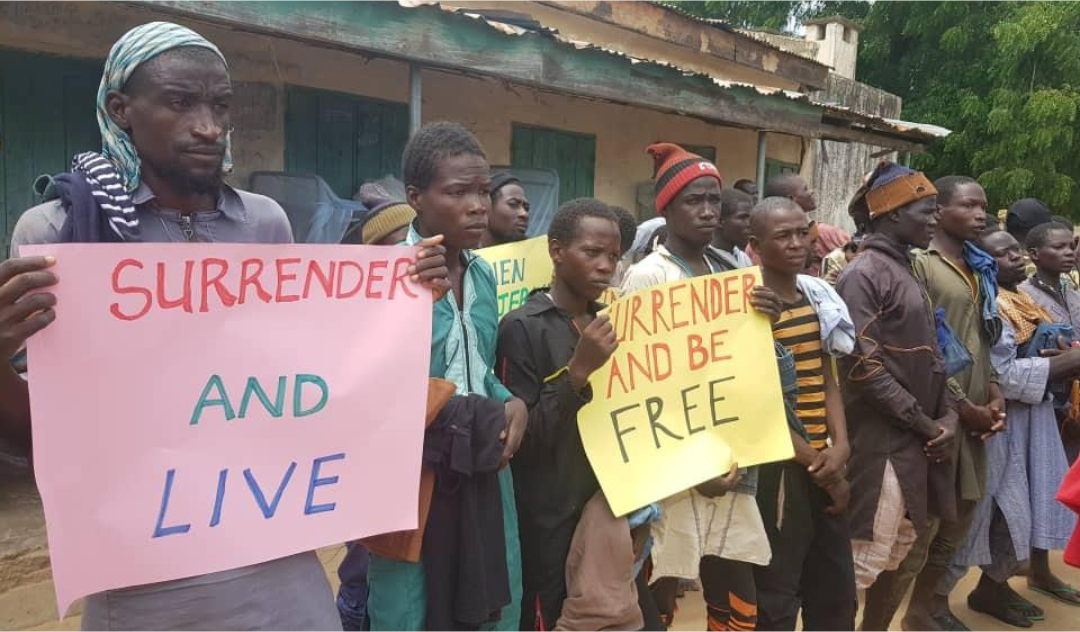
The recent wave of surrender by the members of Boko Haram and Islamic States West African Province (ISWAP) terrorist groups and their families to troops of Operation Hadin Kai in the northeastern part of the country has become a topic of discourse within the security and intelligence circle.
For some weeks now, more than 1,500 Boko Haram fighters have surrendered and laid down their weapons in droves in different parts of Borno and Yobe where they had maintained camps and hideouts in recent times.
An intelligence source familiar with the development has revealed that aside from those that had run out from their enclaves due to the intensity of both artillery and air bombardments from the military; some have surrendered through other arrangements.
The sources revealed that no fewer than 1,000 fighters have so far surrendered of which more than 500 women and children had been handed over to Borno government with two of the 276 schoolgirls abducted in Chibok by the Boko Haram in April 2014, Ruth Pogu and Hassana Adamu were among the women and children received in different locations in Borno.
While Ruth Pogu, alongside someone she was said to have married during her captivity with two children, surrendered themselves to the Nigerian military on July 28, at a location in Bama Local Government Area, Hassana Adamu, and her two children, were received at Gwoza area of Borno on August 14.
The source revealed that the operations that led to the surrender of the repentant terrorists and their families were carried out in tandem with international laws and best practices as regards the case of terrorists that were willing to surrender.
The Director, Army Public Relations, Brigadier-General Onyema Nwachukwu, in the statements announcing the surrendering of the terrorists, said that the sustained military operation had exerted much pressure on the terrorists who have deserted their various hideouts and camps, while those who were convinced that surrendering with their families was the best option, surrendered to the troops.
Mr Nwachukwu said that during profiling, some of the Boko Haram commanders, who surrendered to troops, admitted that their various enclaves were currently plagued with severe hardship such as hunger, disease and the fear of military offensives.
He added that the surrendered terrorists had hitherto hibernated around the fringes of Sambisa forest area of Borno before yielding to troops’ heavy artillery and air bombardments with their weapons and incendiaries.
However, Governor Babagana Zulum of Borno and other well-meaning Nigerians, have continued to applaud the new development with the belief that the end to insurgency in the northeastern part of the country may be in sight while some groups and individuals had expressed reservations on how the repentant terrorists could be pardoned.
Facts about repentant terrorists are that the Nigerian military is not responsible for their rehabilitation, deradicalisation and reintegration but the Nigerian government through Operation Safe Corridor.
Operation Safe Corridor was established by the Nigerian government in 2016 as part of a national strategy to degrade militant activity in the North-East to receive repentant Boko Haram and Islamic State in West Africa Province (ISWAP) members who voluntarily defected from the groups.
The programme’s aim is to rehabilitate repentant Boko Haram militants and reintegrate them back into their respective communities as productive law-abiding citizens, though with strong reservation and criticism against it.
The defecting members will acquire vocation training, access de-radicalisation and civics programme to become useful members of their society upon release from the programme and the programme’s core target group is low-level jihadist recruits who perform combatant and/or non-combatant roles but desire to escape the movement they were coerced into joining.
There are international humanitarian laws guiding the rule of surrender by a known terrorist or criminal who has decided to denounce his membership and ideology of the group that made him take up arms against the state in the first place.
Russell Buchan, a Senior Lecturer in International Law, University of Sheffield, United Kingdom, in his article entitled “Rule of Surrender in International Humanitarian Law’’ published in 2018, said that the act of surrender possessed a political, military and legal dimension.
Mr Buchan explained that the political dimension in the act of surrender indicated that a surrendering party had been defeated and the opposing force had been victorious.
In its military context, he said the act of surrender meant that the person surrendering was no longer engaged in hostilities; while the legal dimension was where a valid offer of surrender was communicated to and received by an opposing force.
According to him, the opposing force is legally obligated to accept that offer and refrain from making surrendered persons the object of attack, saying the view that surrendered forces should not be made the object of attack is supported by the principles of military necessity and humanity.
“Where persons clearly indicate that they no longer intend to participate in hostilities, they no longer represent a threat to military security and thus there is no military necessity to target them.
“Moreover, to target persons who have placed themselves outside the theatre of war constitutes an unacceptable and indefensible affront to human dignity,’’ he said.
Mr Zulum, while acknowledging the effort of the military, said that the ongoing surrender of Boko Haram terrorists had presented the state with two extremely difficult situations requiring stakeholders’ serious examination of the wider implications.
He said that stakeholders needed a well-thought-out critical framework that would either accept the surrendering terrorists, or reject them and continue with the war.
Mr Zulum explained that he would engage in high level consultations with President Muhammadu Buhari, service chiefs and resident security heads, traditional rulers, elders and religious leaders, national and state assembly members, academics and other stakeholders, particularly victims of the crimes perpetrated by the insurgents, so that stakeholders would critically review the situation for a framework on how to move forward.
According to him, no one would find it easy to accept killers of his or her parents, children and other loved ones.
“In the last 12 years we have been in this war, and we have lost thousands of fellow citizens.
“We don’t know the whereabouts of thousands of others. We don’t know whether they are alive or dead.
“In these 12 years, millions have been made homeless and many wealthy farmers, transporters and others have been rendered poor.
“In these years, we were able to cultivate maybe around three per cent of the arable land. As a result, our people became dependent on food aid amid donor fatigue and potential food insecurity.
“In fact, the repercussions of the Boko Haram crisis are enormous and as someone who has been involved with assessment of the impacts and rebuilding efforts in the last seven years, I am in position to know the endless negative impact the Boko Haram has made in Borno.
“Accepting Boko Haram has the risk of seriously offending the feelings of victims with potential of civil rebellion, just as there is the risk that if Boko Haram fighters willing to surrender are rejected, they can join ISWAP to swell the ranks of fighters in the bush and the path of peace becomes narrowed,” he said.
Meanwhile, leaders of the northern socio-cultural group the Arewa Consultative Forum (ACF), has said that there should be no pity but a full-scale trial for ‘repentant’ Boko Haram members, while warning the government against accepting the surrender overture of terrorists.
The National Chairman of ACF, Audu Ogbeh, while addressing newsmen recently, maintained that if the deadly Boko Haram members would be set free, the government should as well free all those in custody in any part of the country for one crime or another.
He said the terrorists, who got a slap on the wrist, were bomb makers, commanders, arsonists, rapists and kidnappers, saying that surrendering was not enough to bring relief to thousands of Nigerians or even those killed.
“We are currently witnessing the large-scale surrender of a large number of Boko Haram insurgents, among who are bomb makers, commanders, arsonists, rapists, and child snatchers. Do we have good reason to cheer and hope for an end to this decade-old insanity?’’ he said.
We have recently deactivated our website's comment provider in favour of other channels of distribution and commentary. We encourage you to join the conversation on our stories via our Facebook, Twitter and other social media pages.
More from Peoples Gazette

Politics
Katsina youths pledge to deliver over 2 million votes to Atiku
“Katsina State is Atiku’s political base because it is his second home.”

States
APC condemns suspension of Zamfara CPG commandant
We urge the state government to concentrate on meeting its campaign promises, especially in the security sector.
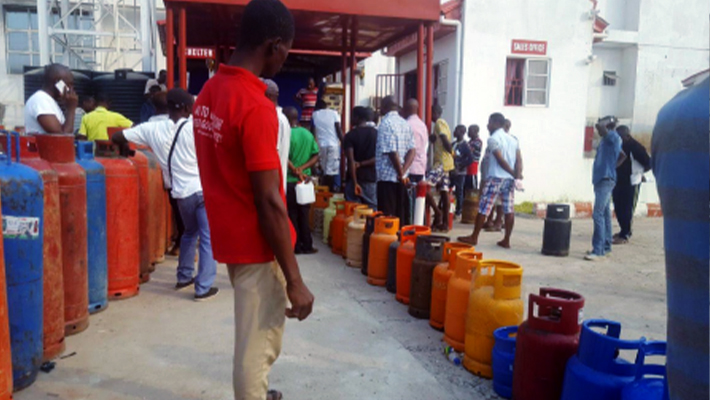
Hot news Home top
Average price of 5kg cooking gas stood at N6,591.62 in March: NBS
The report said the March price represented a 7.10 per cent increase.

Heading 4
ECWA commends CBN over stability, appreciation of naira
The church called for the sustenance of the efforts to help curb inflation.
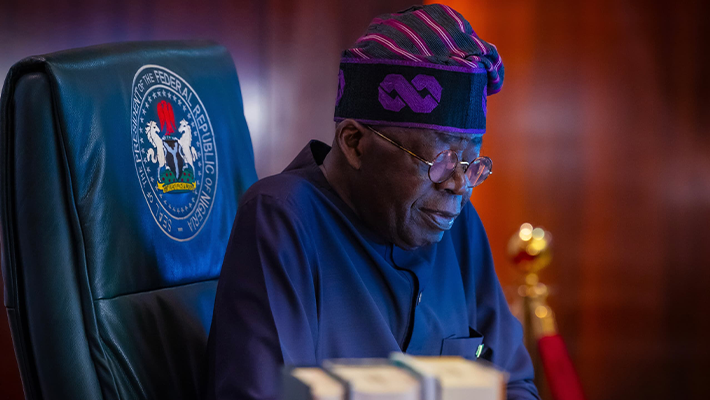
NationWide
Tinubu appoints new boards for NAICOM, SEC
The president urged policyholders, the public interest and improving trust and confidence in the sector.
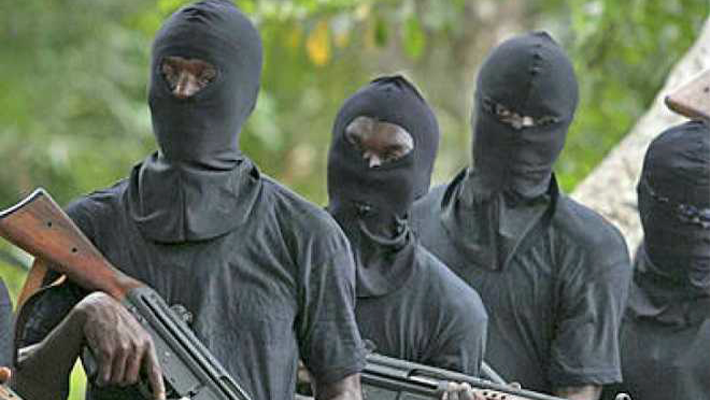
States
Gunmen killed 13 in Plateau attack: Police
“He has also been briefed on the previous security arrangement.”
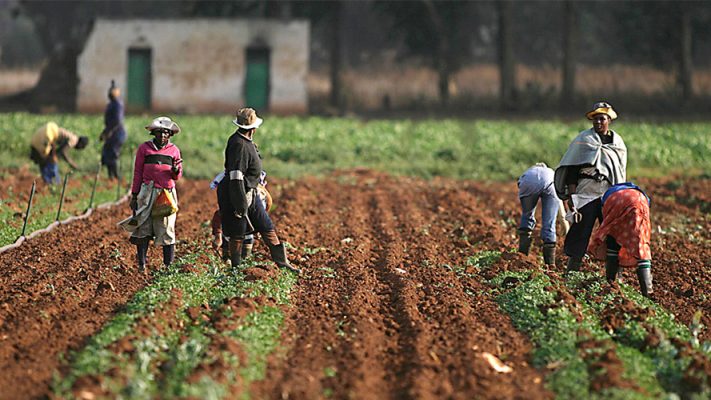
Agriculture
Katsina farmers urge govts to provide fertilisers at subsidised rates
Aliyu Muhammad, a farmer, said that most farmers could not afford the commodity due to exorbitant prices.








